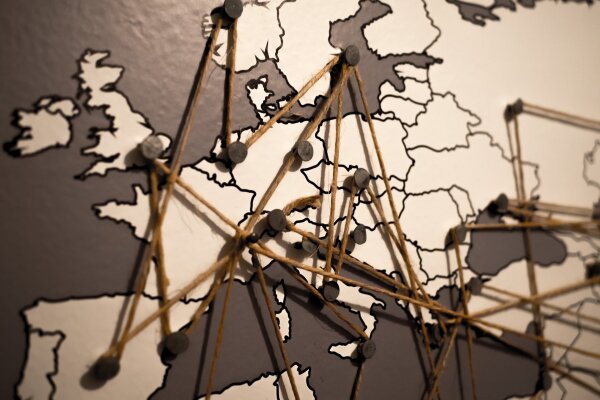Am 9. Mai eines jeden Jahres wird der Europatag der Europäischen Union gefeiert. Hintergrund ist die sogenannte Schuhman-Erklärung vom 9.05.1950. Fünf Jahre nach dem 2. Weltkrieg stellte der damalige französische Außenminister, Robert Schuhman, seinen Plan zur Gründung der Europäischen Gemeinschaft für Kohle und Stahl vor. Die im Plan fokussierten Vorhaben „Frieden und Freiheit in Europa durch Zusammenarbeit“ markierten somit den Beginn der friedlichen Einigung Europas und legten den Grundstein für die heutige Europäische Union.
Zusätzlich zu diesem Tag findet bundeweit vom 4. – 12. Mai die zugehörige Europawoche statt, welche unter dem Motto „Europa: gemeinsame Werte, gemeinsame Zukunft“ steht. In ganz Europa finden rund um den Europatag zahlreiche Veranstaltungen statt, um dem Frieden und die Einheit Europas zu gedenken und diese zu feiern.
Wolltest du schon immer mal wissen, was genau die Arbeit einzelner Organisationen, Institutionen oder Ländergesellschaften ist? Bist du dir immer noch unsicher was und wen du genau am 26. Mai bei den Europawahlen wählst? Möchtest du am Women´s March in Berlin teilnehmen? Oder möchtest du dich über die Demonstrationen „Ein Europa für Alle“, welche am 19. Mai europaweit stattfinden werden informieren? Mach dich schlau, vielleicht ist ja die ein oder andere Veranstaltung auch für dich interessant! Alle Termine mit den entsprechenden Verlinkungen findest du hier.
Weiterführende Informationen rund um den Europatag und die Europawoche findest du ebenfalls auf der Homepage des Informations-Portals zur politischen Bildung oder direkt auf der Homepage der Europäischen Union. [:en]Every year on the 9th of may the European Union celebrates the Europe Day. Background is the so called Schuhman Declaration of 9th may 1950. Five years after the second world war Robert Schuhman proposed the pooling of French and West German coal and steel industries. Therefore the plan, which focussed on “Peace and freedom in Europe through working together”, marked the beginning of the European Union and layed the cornerstone.
Additionally to this day the Europe week takes place from the 4th of may to the 12th of may, with the motto: “Europe: common values, common Future”. All over Europe there are many events sourrounding the Europe day, to celebrate freedom and unity.
You always wanted to know, what work the different Organisations and institutions do? You are still uncertain what and who to vote for on the 26th of may at the elections? You want to participate in the Women’s March in Berlin? Or you want to inform yourself about the demonstrations “One Europe for everyone”, which will take place in whole Europe? Maybe you find an event that ist interestingfor you! You find all dates with the corresponding links here.
Further Information regarding the Europe Day and the Europe Week can be found on the Homepage of political education or directly on the Homepage of the European Union.[:en]Every year on the 9th of may the European Union celebrates the Europe Day. Background is the so called Schuhman Declaration of 9th may 1950. Five years after the second world war Robert Schuhman proposed the pooling of French and West German coal and steel industries. Therefore the plan, which focussed on “Peace and freedom in Europe through working together”, marked the beginning of the European Union and layed the cornerstone.
Additionally to this day the Europe week takes place from the 4th of may to the 12th of may, with the motto: “Europe: common values, common Future”. All over Europe there are many events sourrounding the Europe day, to celebrate freedom and unity.
You always wanted to know, what work the different Organisations and institutions do? You are still uncertain what and who to vote for on the 26th of may at the elections? You want to participate in the Women’s March in Berlin? Or you want to inform yourself about the demonstrations “One Europe for everyone”, which will take place in whole Europe? Maybe you find an event that ist interestingfor you! You find all dates with the corresponding links political education or directly on the Homepage of the European Union.


